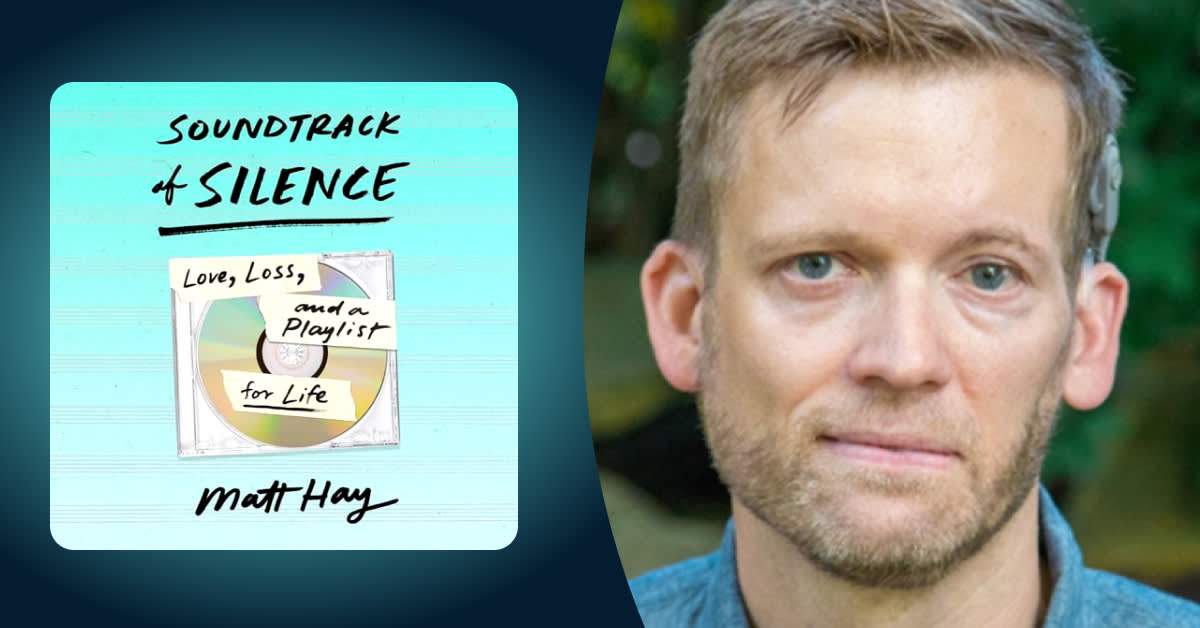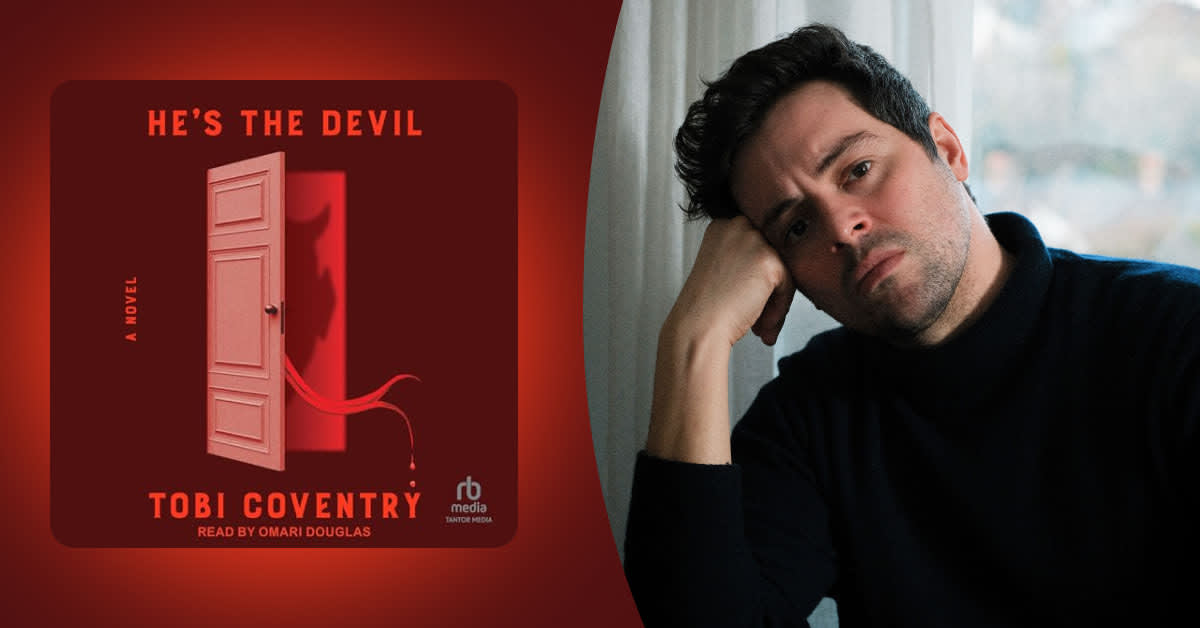After learning he was going deaf, Matt Hay resolved to make a mental log of the songs that enriched his most sentimental memories. The exercise resulted in Soundtrack of Silence, a moving memoir that chronicles joys and hardships from across his journey with hearing loss. Here, Hay discusses the happiness that music brings him today, his experience while recording the memoir in audio, and what he would like listeners to learn from an audiobook about deafness.
Haley Hill: Throughout Soundtrack of Silence, you chronicle the significant songs that influence your memories of moments in your life from before you lost your hearing. How would you describe your relationship with music today?
Matt Hay: My relationship with music has evolved in pretty unique ways. Ahead of my deafness, music was a way to capture memories and create a soundtrack to my life. In the years after my brainstem-implant surgery, those same songs became part of the therapy to teach my brain to hear again. When I was finally able to hear pieces of those songs, music became nostalgic because I was always thinking about my past. My relationship to music changed again recently because, even though the songs are the same, I'm now listening to them with my kids and creating entirely new musical experiences. It was never my intent, but my kids grew up listening to my "soundtrack" and my heart smiles each time I see the Beatles or Prince on their own playlists.
How was your experience recording your memoir in audio affected by your hearing loss?
I initially said no to the opportunity to narrate my audiobook. However, two things changed my mind. First, the tools and technology available to support the hearing-loss community, which hardly existed even a decade ago, are remarkable. Not only did the Macmillan team send me all the equipment I needed (and some I didn't, like headphones!), but a supportive sound engineer was with me virtually throughout the entire process, and I had real-time closed captioning to help me understand the feedback he offered as I read.
The second factor was that it felt hypocritical for me to say no. I wrote this audiobook in part to encourage people to use their voices, and here I was being asked to literally use my voice. This was too unique of a challenge to decline.
“What a privilege it is to also be a part of improving accessibility to information and for my own journey to be a part of that.”
What would you like listeners to take away from an audiobook that is about deafness as well as the privilege of being able to hear sounds?
“Privilege” is the perfect word here and one that took me years to appreciate. My story wouldn't be the same without the access I had to education and health care as I navigated the sometimes very rough waters of more than 20 brain, spine, and eye surgeries. Even my rare disease diagnosis took four days when for some it can take years. Part of my work is to improve health equity and, while it's probably easy to joke about an audiobook by a deaf guy, I see the work Macmillan Audio does as a way to be more inclusive for readers and listeners. What a privilege it is to also be a part of improving accessibility to information and for my own journey to be a part of that.





